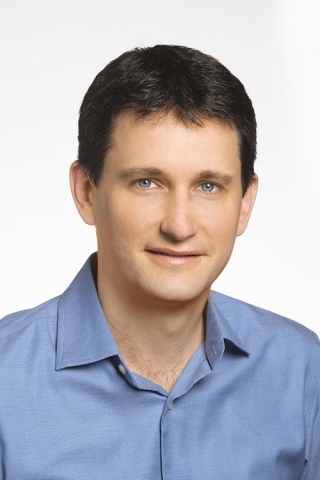Dr. Oren Shoval
A road paved by science and the founding of Via
Alumni

In this age of convenience, on-demand car services such as Uber and Lyft have become so popular that city dwellers across America wonder how they survived without them. It’s easy to forget that just a few years ago, using a smartphone app to hail a ride was a novel idea. And one of the first to recognize its potential was Weizmann Institute alumnus Dr. Oren Shoval.
Dr. Shoval is a co-founder of Via, a New York City-based startup that is taking the urban transportation space by storm. Since its inception in 2012, the company has provided more than 10 million rides, launched in several markets, and raised $137 million from investors.
What makes Via stand out from its competition? Rather than providing door-to-door rides, it offers ride shares for passengers traveling in the same direction and drops them off within a couple blocks of their destination. In this way, the company keeps the number of vehicles to a minimum, and guarantees low, flat fares. For New Yorkers, it means being able to travel from lower Manhattan to Harlem for about $5— “the price of a latte,” as Via’s website points out.
Now running a growing company and raising two young children, Dr. Shoval, 39, admits his life has changed dramatically in the four years since he earned his PhD in systems biology at the Institute. He says Via is the outcome of his thinking in terms of system-level problems—and solutions.
Moreover, he says, “The Weizmann Institute taught me to trust my instincts, to feel comfortable with uncertainty, and to take a complicated problem and try to simplify it,” he says. “It’s a state of mind that is very useful in my day-to-day work.”
This state of mind is vital for game changers in any field, something his mentor at the Institute, Prof. Uri Alon of the Department of Molecular Cell Biology, taught him. “Uri told me that if you ask a question you have no clue how to answer—and it causes anxiety—that’s a good thing,” Dr. Shoval says. “We’re not here to do something that’s already been done.”
He grew up in Rishon LeZion and was always interested in math and science. He was accepted into a prestigious program in the army where he pursued his studies in tandem. He earned a BSc in physics and mathematics from the Hebrew University of Jerusalem, and an MSc in electrical engineering from Tel Aviv University. He spent almost 10 years in the IDF, during which he led engineering projects for the Air Force.
The modern way to hitch a ride
He had planned to pursue a postdoc, but he and Dr. Daniel Ramot, a friend from the Air Force, came up with the idea for Via. It was based on shared taxis in Israel called moniot sherut; anyone who has landed in Ben-Gurion Airport and needs to get to Jerusalem knows this is a popular option. They thought that combining this concept with mobile technology would create a “dynamic bus system,” he says, that is both efficient and eco-friendly. At the time, however, they faced naysayers who were convinced Via would fail. Undaunted, he says, “I recalled my training with Uri, who taught his students about the importance of venturing bravely into the unknown.”
He and Dr. Ramot, who holds a PhD in neuroscience from Stanford, brought their research backgrounds to bear while developing Via. While the platform appears simple and intuitive, behind the scenes Via requires complex algorithms and data to build, mix, and match the routes—all in real time. Today, Via provides more than 200,000 rides weekly in New York City, Chicago, and Washington D.C., with plans to expand to other cities. It is also marketing its technology to public transit agencies, and college and corporate campuses; the technology was deployed in Paris through a partnership with the public transit operator, Keolis. Via’s team has grown to include about 100 employees at three offices.
Like in the lab, he says, “The process of building Via has involved coming up with an idea, developing it, testing it, deploying it, and tweaking it.”

Dr. Oren Shoval







